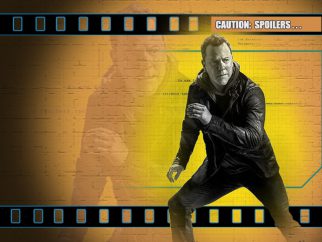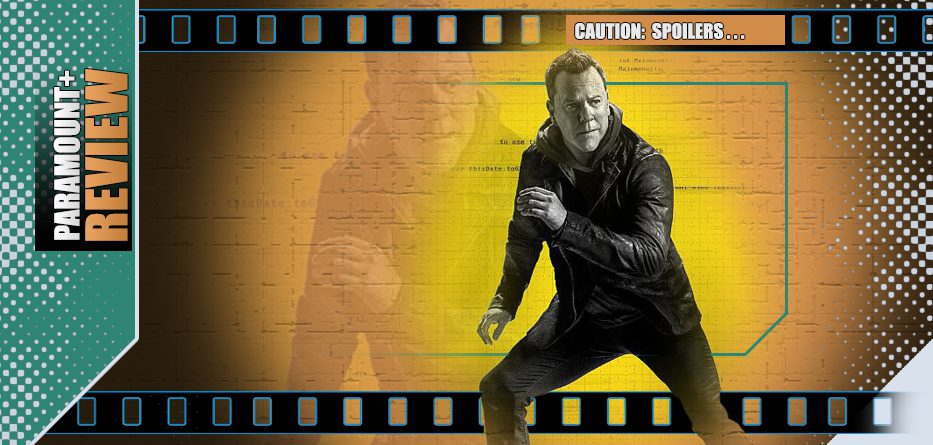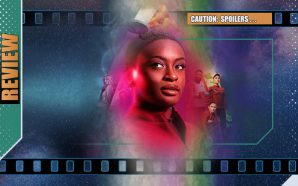John Weir is the man you call when you need something fixed. The right person photographed with the wrong person…he’s your man. Stocks manipulated by treading right up to the legal fences but never quite beyond… that’s his specialty. He and his team are the people who like (and profit) taking down the people who deserve it, even if their clients aren’t always doing so for altruistic purposes. Even amongst friends and colleagues, Weir trusts no-one because, he has learned the hard way: a person who doesn’t have any friends can never be betrayed, only mistaken.
When he takes on a job for his old business-partner, it only seems to be a drive-by job for old-times sake. It quickly becomes clear that there’s far more going on. People are dying, buildings are literally blowing up and even the FBI Financial Crimes Agent who is keeping tabs on him begins to think that Weir has become the target of a conspiracy rather than the puppet-master.
But on the run from the police and seemingly other forces, how far is John Weir willing to go and how far has he already gone? In a world where he’s the master of manipulation, whom do you believe and how far down the rabbit-hole will you go?
*spoilers*
It’s been exactly thirteen years to the day since I ran a piece on the announcement that 24 would be coming to an end as a regular series (coincidence… maybe that’s what they want you to think?) and here we have a new series with Keifer Sutherland that definitely isn’t the ground-breaking real-time spy show but uses our memories of that and the ‘Jack Bauer’ persona in a clever and subversive way. As John Weir navigates the streets, hotel bars and bedrooms of New York, alternating between the look of an assured, bespoke-dressed stockbroker with a love for fine whiskey and real football and an intolerance for idiot stock-brokers with the laugh of a warthog – and the apparent almost-paranoid persona of someone who believes they are constantly being spied on, the viewer latches on to the ‘fact’ that we’re not just watching a typical guy. Our allegiances are likely with the fact there’s more to him than we initially see and that his paranoia is right or well-founded.
24 was created as a show to engage the action-quotient and launched at a time of unprecedented national nervousness after 9/11 that even its creators couldn’t have foreseen. Rabbit Hole, though a distant cousin in the broad sense of a conspiratorial against-the-odds idea, comes at a time when we’re starting to be acutely aware of information as currency, data-monitoring as a hidden connective web and wide-spread cameras and surveillance as the double-edged sword of privacy and accountability. That’s a different threat to people flying planes into landmarks, but arguably just as chilling and as individuals and a society, we’re all trying to work out how we feel about all that. We’re also in an era where the truth is spun into different patterns depending on who is providing it and this is a show showing how quickly thatcan shift on a foundational level. In short, John Weir is going to be our entry-point to a show where there’s muscles to be flexed of the mental and physical variety…where he is both the architect and the wrecking ball of what is to follow.
Bluntly, Rabbit Hole isn’t remotely original, but it is slick and entertaining and uses its potentially-tropey source code to pre-emptively subvert the audience’s expectations as to what’s going on…Perfectly-timed and blueprinted for these cynical times – if less organic than 24‘s debut – Rabbit Hole could be the right reactive show at the right reflective time with co-creators John Requa and Glenn Ficarra (This is Us) giving us a guilty pleasure of nonfungible dramatic limits in which to invest…
But it’s soon established that this isn’t 24 and this isn’t Jack Bauer. Sutherland may have established a certain consistent look and vibe during his tv years (earnest, weathered but generally an overtly-capable good guy) but as an actor he’s aware of the comparisons that will come and quickly establishes some differences for this new role. Bauer was a physical, scarred powerhouse and Weir normally moves a little differently, almost gracefully when he’s in control – excelling with the hands-on approach to subvert the power of electronics and he’s as far away from a CTU agent as you can get when actually forced to physically run away. His brain and planning are his weapons and his fists only come into play when needed, though that starts to be more common-place. Weir, we find out, may be a victim here, but he’s also lived a life of being prepared for this and he is the one you might have to watch even when he’s standing still. A corporate consultant with some very high-profile clients (though he’ll never confirm if they are his clients because… well, confidentiality and all that), he is usually the master of any situation he walks into. We see in flashback that the bar situation we saw him in was actually a complete set-up (several fake customers, a helpful barman and a fake news broadcast) by he and his team to influence a stock-broker into dumping stock from an erectile dysfunction pharmaceutical firm so one of Weir’s clients can pick it up at a dirt cheap price and make the stocks price rise again. Allegedly. In further flashbacks we see some of the events that changed him as a child and which will grow more important as the series progresses.
The conceit of Rabbit Hole is that while we’re backing Weir as our ‘hero’, it’s not entirely clear if we’re on the right side. He might not be likeable as a person (he’s the guy with an eye for overheads and, it’s pointed out, would likely ask for a receipt if he gave a homeless man his loose change) but even if he’s frugal, cocky and arrogant, he’s also smart and quite often right – charming and quick-witted (the sparkling banter gives the show a laconic humour). He’s got where he is (and where is that?) by being cynical – and often being proven right – about the low benchmark of the human condition. But like many people at the top of his game, he’s also something of an enigma, trying to balance the elements of an everyday life (ex-wife, somewhat estranged teenage son, troubled upbringing and the things that many people take for granted) with the knowledge that it’s very precarious. For much of the opener we’re trying to work out whether Weir is someone who is rightly cautious or unduly paranoid. If he doesn’t really trust anyone, whom are we to trust as the drama play out? As it turns out, we shouldn’t even be trusting Weir.
Rabbit Hole smartly makes Weir an asshole, but one who operates on some principles – for instance we see that he left some of his previous partners when the company, Arda Analytics, got solely motivated by the huge profits they were making. He remains on good terms with them, especially CEO Miles Valence (Jason Butler Harner of Ozark and The Walking Dead) but with just enough distance to chat socially and reminiscing about the good old days without wanting to re-enter their boardroom. Even for him, their talk of handling and streamlining the resources of the NYPD makes him a tad uncomfortable. When he does Valance a drive-by favour, it’s the start of Weir’s world unravelling, but then it becomes a matter of complexity and compliance and it’s a while before we start to work out any of the unseen angles.
When things inevitably go askew, it happens suddenly. One second Weir is walking down the New York Street (actually Vancouver) and checking to see if his recent hook-up was genuine or not and the next his picture is being plastered all over electronic news billboards as being implicated in the murder of the person (a Treasury Official named Edward Homm) that we believed he was just setting up for a photo-opportunity. Suddenly Weir’s face is everywhere and now he’s playing cat-and-mouse with everyone and apparently calling in some very old favours.
Bluntly, Rabbit Hole isn’t remotely original, but it is slick and entertaining and uses its potentially-tropey source code to pre-emptively subvert the audience’s expectations as to what’s going on. ‘You think you’ve seen it all before…?‘ it smiles and then pulls another rug. It combines Person of Interest paranoia and tech, Leverage levels of sleight of hand inside a Three Days of the Condor opener with a Scandal chaser and a mix that then tilts into something else with mythological elements of over-looked shows like Profit. Will it be as good as any of them in the end – we’ll see.
Perfectly-timed and blueprinted for these cynical times – if less organic than 24‘s debut – Rabbit Hole could be the right reactive show at the right reflective time with co-creators John Requa and Glenn Ficarra (This is Us) giving us a guilty pleasure of nonfungible dramatic limits in which to invest. And amid the Sutherland-subterfuge, it doesn’t forget to actually be fun. Weir’s ‘hostage’ Hailey (Meta Golding) immediately comes across as someone who can handle herself and won’t take any crap from Weir amid the craziness enveloping them. There’s banter here – though, like Weir, I wouldn’t trust anything we know about her. There are even some subtle in-jokes. FBI’s Financial Crimes Agent Madi (Enid Graham) has an assistant called Chloe (Dammit..!) and the Intern of Weir’s team (played by Walt Klink) has a poster on his wall for Stroszek, the 1977 Werner Herzog film described by Roger Ebert as ‘… impossible for the audience to anticipate a single shot or development.‘ Then again, Rabbit Hole is the kind of show where you will start to be as paranoid as Weir – constantly scanning the backgrounds for inconsistencies or patterns, almost expecting to have situations being retrospectively revealed to have more going on than you thought. And with both the newly-minted episodes, debuting today on Paramount+, ending on genuinely narrative-flipping ‘WTF?‘ moments, it’s clear that this is going to be a ride. It won’t be sustainable on surprises alone – in the end, even with some disbelief suspended, the premise will have to make sense and that could be its undoing – but it’s definitely enough to keep watching for now as a guilty pleasure investment and maybe something more…

- Story9
- Acting8
- Direction8
- Production Design / VFX8












